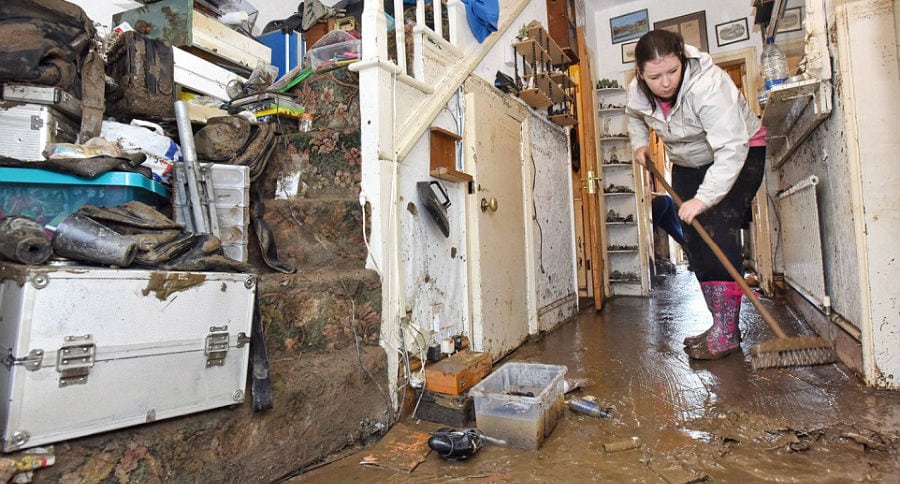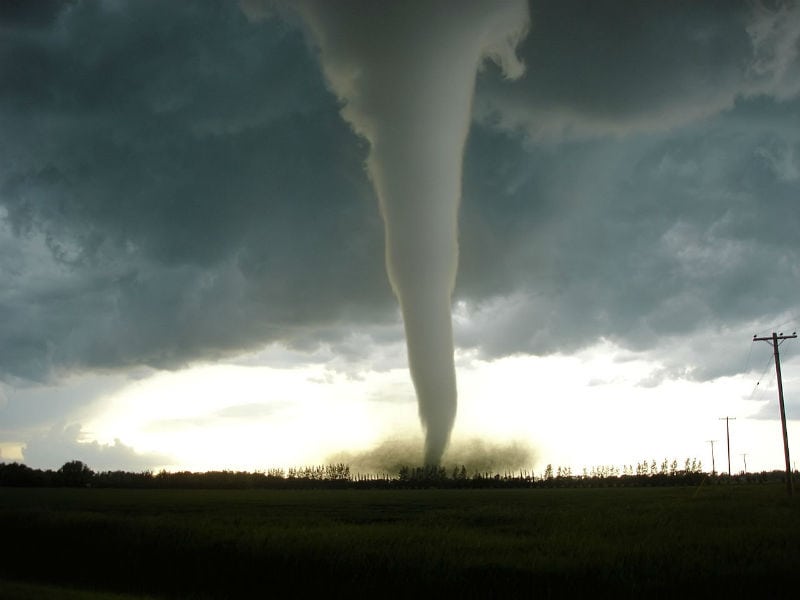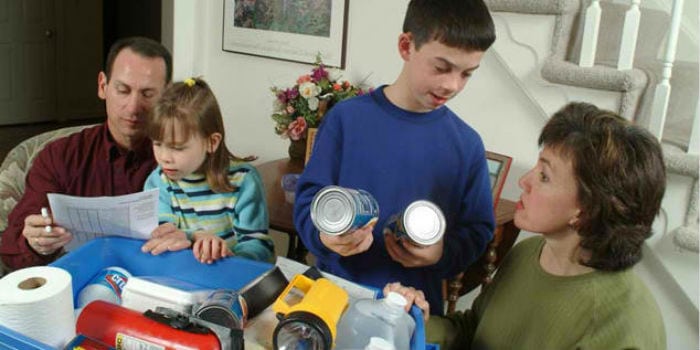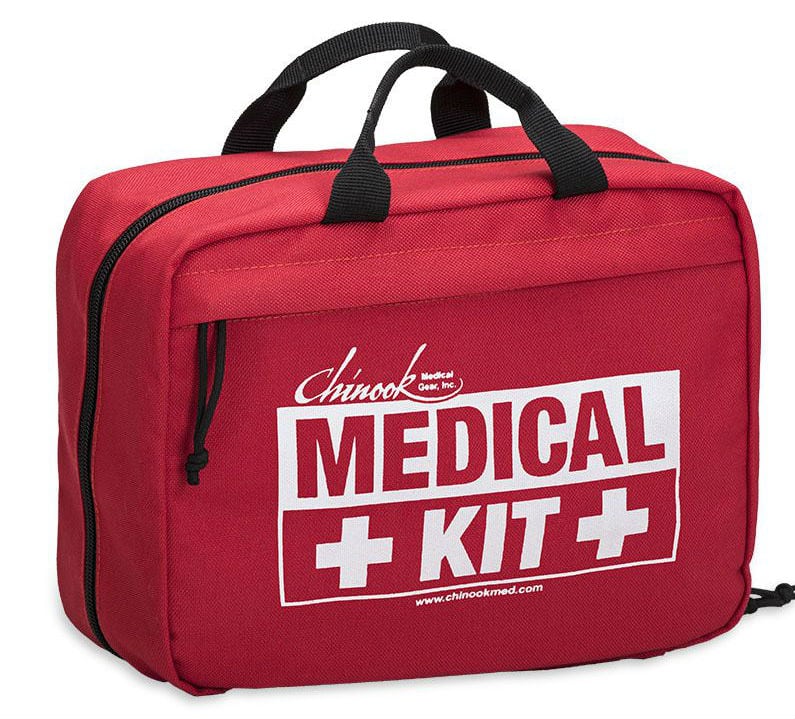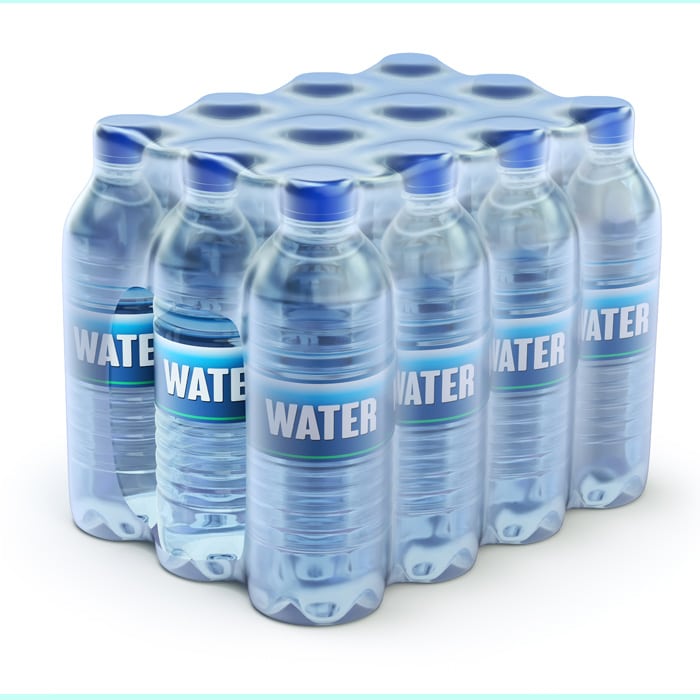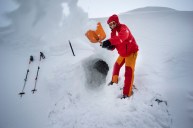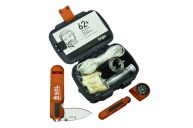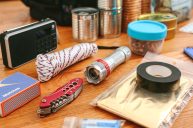Are you ready should disaster strike? Preparedness just makes good sense. Here are some things to consider when preparing your home for disaster.
The recent hurricane in the southern part of the country has reinforced the idea of preparing your home for disaster. Emergency situations can strike anywhere and at any time. Hurricanes, flooding, tornadoes and earthquakes occur throughout North America. Even in areas that are relatively free of such phenomenon, winter storms or high winds can create circumstances beyond one's control.
Are you ready if, for example, your home or neighborhood suffers a power outage? What if circumstances cause a failure in other utilities, or shortages in gas or food?
At the bare minimum, you should have an emergency plan to deal with a tough situation. You don't need to go full prepper here—although that's not a bad idea. But having a few common-sense items to help you get through a rough period and back on track once normalcy is restored will make life much less stressful.
Remember the Boy Scout motto: Be Prepared!
First, you should figure out what are the most likely natural disasters that could throw a monkey wrench into your life routine? Do you live in an area where flooding or tornadoes are a part of normal, seasonal weather? Are you in a larger metropolitan area where utility failure, a power shortage or some other disruption to your living condition could occur?
You have to take stock of your living conditions and determine what you can realistically keep on hand. Regardless of where you live, you can and should have some form of emergency kit handy and accessible should you need it.
A plan is essential
The list of items you'll want to have on hand is somewhat fluid, but one thing you most assuredly need is a plan of action. If all you have is a first-aid kit and a plan, you're ahead of the game. An emergency plan will give you peace of mind and help you deal with many situations that arise.
What should you and every family member in your household do should a disaster present itself? What are everyone's responsibilities? Does every mature family member have a cell phone with every other member's phone number and emergency numbers in their contact list?
If, for example, the power goes out, does everyone know where the candles or lanterns are located? Does every family member know where the replacement batteries or propane canisters are and how to install them?
Does every family member know what to do in case, say, a tornado strikes? Do they know where the safe places are and where they need to get to whether they're at home or away from the house? The most important part of emergency preparedness is arguably being mentally prepared. You and your loved ones' mindset is at least just as important as the emergency items you have stockpiled.
You need to have a family meeting and discuss these sorts of things, review procedures and familiarize everyone with where things are and what to do. Then review these procedures at least once a year.
There's a reason you ran fire drills when you were a kid in school
In addition to talking about what to do, where to go and how to operate certain pieces of gear, actually doing it is, in my opinion, vital to successfully preparing your home for disaster. In this case, familiarity breeds peace of mind. Run a mock fire drill in your home, or sound the alarm, so to speak, for a tornado. Make sure that everyone knows how to get to safety quickly and efficiently.
Have a day where you live as though the electricity or tap water is out. If you have kids, make it a fun event but seriously look at your backup systems for dealing with these things should they ever occur in reality.
Emergency supplies
No matter where you live, there are some items you can and should have on hand and that are easily accessible. A first aid kit is probably the most important. Of course, you can purchase pre-stocked first aid kits from just about anywhere. That's an acceptable option. There are also plenty of online resources to help you put together a first aid kit to suit your likely needs. It also never hurts to have at least two first aid kits in different areas of your home, or one in the garage and one in the house.
At the least your first aid kit should have gauze bandages, compresses, bandaids, antiseptic, aspirin, ibuprofen, surgical tape, antiseptic, scissors, eye wash, alcohol pads, tourniquet, thermometer, latex gloves, first aid manual, emergency phone numbers, specific medications for personal conditions and more. My kits contain more items than this, including sutures, needles and floss for thread, flashlight, tweezers, Israeli bandages, splints, space blanket and more.
Make sure that you and your family are trained on how to use things like Israeli bandages, splints and medications. Additionally, CPR and basic first-aid training are always worthwhile and could save a life.
Food
Next, let's consider some basic human needs: food, water and shelter.
You'll want a supply of perishable and non-perishable food. You can put this together yourself by purchasing bulk grains, dried foods and canned goods. You can also grow a garden and prepare some vegetables for longterm storage. Even a container garden on a patio can help get you through a few days if need be. There are a lot of emergency dried food packages available from any number of sources. The meals in these kits are tasty and have an incredibly long shelf life. They are not unduly expensive either.
You'll have to decide how many days worth of rations you'll want to have on hand.
If you're a hunter or fisherman, so much the better. You've probably got a freezer or pantry full of meat already.
You can dedicate an area of a basement or closet to food storage. Just be sure that you also have the requisite pots and pans, can opener, utensils and dishware with which to prepare and serve your meals. A gas or propane stove, such as a Coleman stove, is also a good idea, in case the power is out on your home stove or you have to evacuate the house. Outdoor cookware is a great addition, should you be forced to "camp."
Water
Clean drinking water is essential to survival and comfort. If something happens that knocks your tap water out of commission you absolutely must have a backup water source secured. You can go three days without water and survive, but we're not interested in merely surviving here. You want to get through a disaster as comfortably as possible. Emergency preparedness isn't only about survival. It's about surviving with a positive attitude and maintaining a healthy physical state.
If someone is injured, drinking and bathing water is even more important. Depending on where you live your water requirements will vary. Of course, unduly hot or cold environments will demand you drink more water to stay hydrated. On average, though, you ought to expect to need a minimum of two quarts a day per person for survival purposes. Better, in my mind, to double that and figure around a gallon a day.
That's a gallon of water per person per day, minimum. That's just water to drink. You'll want to have more on hand for cooking and light bathing, brushing your teeth, washing your face, cleaning wounds, etc.. You should go through your food stores of dried foods and compute how much water you'll require to prepare meals. I figure it's always better to have considerably more water and food than I think is necessary.
Bottled water is obviously the way to go here. Bear in mind that bottled water has expiration dates or "best if used by" dates. It'll last longer than the bottle date, but its quality will diminish. You should regularly change out your water stores to maintain a fresh supply.
If you have a water source nearby, like a stream or a lake, you could make use of that. Just make sure you have a water treatment and filtration apparatus available to sterilize the water. You can also use the boiling method if you have that ability.
Shelter
If your home is still inhabitable in a disaster, you're good to go. If you need to leave your home or it's otherwise unsafe for occupation, you'll need to have other plans ready to act upon. Are you prepared to rent a hotel room, stay with family or a neighbor or even camp on your property. A tent is something most people already have. Store it with your emergency supplies. You may even have to live out of your vehicle if things are dire.
Have contingencies planned for worst-case scenarios. You should also be prepared to take your emergency supplies with you if you're forced out.
But you should do whatever you can to try to make sure that your home is protected. This includes installing safety and security measures like smoke alarms and fire extinguishers. It might also mean having the tools and supplies—like a hammer, nails and plywood—to reinforce your home or windows if you live in an area where storm damage is a possibility.
If you can and if it's practical, having a generator available could also help keep certain systems running should your home be cut off from utilities. Preparing your home for disaster involves doing whatever you can to ensure your residence is intact and safe.
Bug-out bags
Having a bug-out bag or two ready to go is always a good idea. You ought to keep emergency items that can serve multiple purposes. Things like duct tape, a multipurpose tool, extra clothing, fire making tools, maps with highlighted evacuation routes, emergency rations, flashlights, extra batteries and even weapons are standard bug-out bag gear. Again, there are a ton of sites that list potential bug-out bag items for you to consider.
In the context of this article, bug-out bags aren't so much "escape" bags as they are tool bags. Hopefully you won't actually need to "bug out," but you'll likely need to have tools and information easily accessible and portable to make weathering emergency circumstances easier.
Recovering
Once the emergency is over, you'll need to try to return things to normal as quickly and smoothly as possible. You'll want to have any important documents (such as insurance policies or birth and marriage certificates) secured and stored in a safe place. That could be a home safe that's waterproof and fireproof. It might also be a safe deposit box. Of course, you should have homeowner's insurance to help pay for any damages your house might suffer.
Knowledge is power and you can and should learn all you can about disaster preparedness by perusing websites dedicated to that very subject. The Federal Alliance for Safe Homes (FLASH) and the Federal Emergency Management Agency (FEMA) are great places to start. These sites can point you to additional resources to protect your home, safeguard your family and recover your life following a disaster.
Disasters, natural or manmade, can be overcome. But you need to plan and prepare for them if you want to get through them.
Like what you see here? Experience more articles and photographs about the great outdoors at the Facebook page, Stumpjack Outdoors.
NEXT: SURVIVAL: HOW TO THROW BIGGER SPARKS WITH A FIRE STEEL
WATCH
